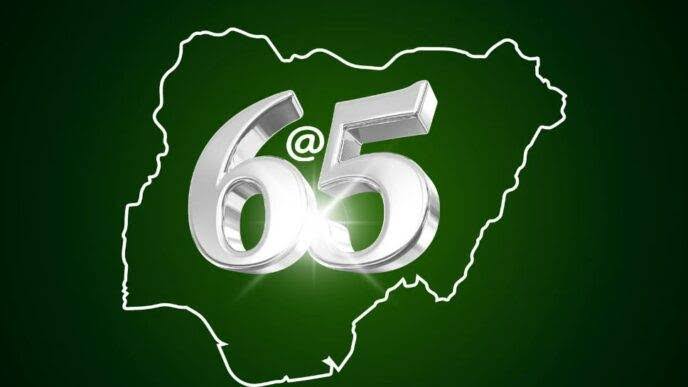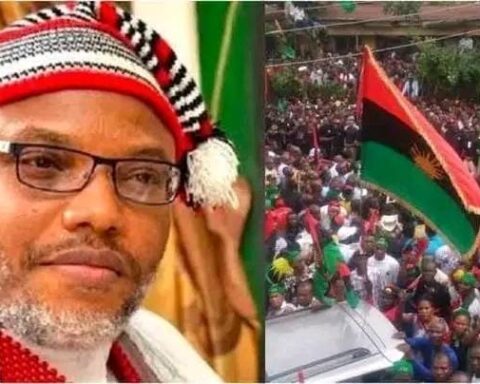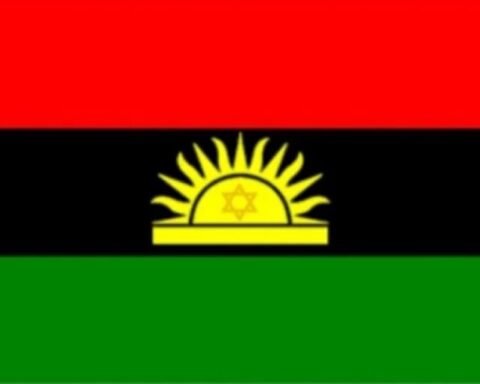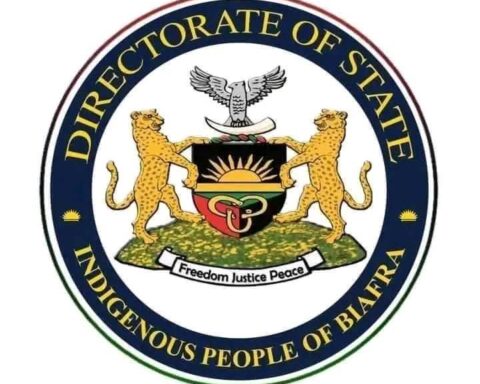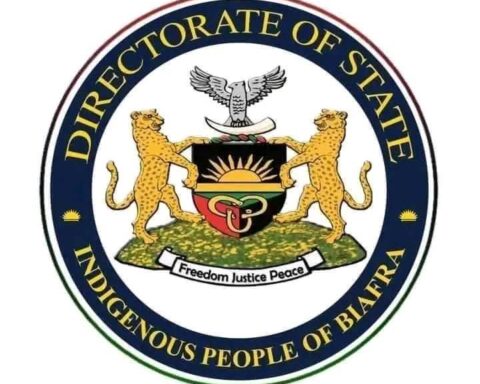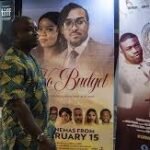O God of all creation, Grant this our one request, Help us to build a nation Where no man is oppressed, And so with peace and plenty Nigeria may be blessed.
The phrase “lunatics have taken over the asylum” is often used to describe a situation where those who are not qualified or competent are in control, leading to chaos or disorder. It originated in a 1919 remark by Richard A. Rowland about the founding of United Artists, suggesting that the least capable individuals are making decisions.
The idiom has been referenced in various contexts, to highlight a lack of proper leadership or oversight. It implies that those supposed to be under supervision are in control. This expression reflects a broader critique of ineffective leadership and the chaos that often ensues from such situations.
Ineffective leadership is characterized by a lack of clear communication, poor decision-making, and a failure to foster a positive work environment. These traits can lead to demoralized followers, and stagnation within an organization or nation.
It is rather unfortunate that the quality of leadership has been declining since the dawn of independence in 1960. It has been one sad story after the other. Our leadership has been in a quagmire.
Prof. Adebayo Williams, writing as Tatalo deposed that: “It has been noted that although humankind first civilized in Africa, he has not continued to do so there. Africa lost it a long time ago. The problem with contemporary Africa and in particular Nigeria is that they are ruled in the main by people on a lower scale of evolution and civilization, specimens of the lower species of humanity, who have seized the levers of power and atrocious governance.
He went on: “Lacking in intellectual, moral, and philosophical anchor, they are fundamentally and genetically incapable of coming up with a set of noble precepts and core values for purposeful and visionary governance which will ameliorate the dire circumstances of their distressed and disoriented people. The result is the frightful noise of state collapse everywhere in Nigeria with the politically undesirable leading the ethnically gullible and electorally culpable to sure perdition.”
Deficient in vision and mission, the leaders are bereft of desired qualities that would engender any attribute that can uplift their people from their state of poverty and lethargy. They are not only corrupt, corrupted and brandless, but are an ugly mintage of human mutation.
Corrupt, irresponsive, irresponsible and incorrigible leadership are indistinguishable sides of the same coin. The irresponsible leadership is callous and spiritually debauched. It is impervious to the pains and plight of its people. It’s a greedy and avaricious leadership that wallows in gluttony.
The political elites have been deficient in the provision of collective goods, including infrastructure, social provisions, regulation, and public order.
The problems and weaknesses arise from a history of flawed elections, the dominance of the ruling party, and scant evidence of political accountability. These have undermined the legitimacy of democratic rule without any dividend to the people. For democracy to thrive it requires strong institutions such as the legislature, courts, police, armed forces and civil service for good governance; but unfortunately, many of these institutions are weak due to poor leadership and corruption.
The weak political structures in Nigeria have also had a negative impact on development. According to Professor Williams, “the country today is witnessing a resurgence of ethnic hostilities, religious disaffection, and regional animosities. There is national anxiety about the state of governance and the structure of the federating units.” The changes promised by the leaders has turned into despondency; with the discovery that elections alone do not resolve national questions but may actually complicate and exacerbate them.
Nigeria society is not homogenous; the political elites in Nigeria, since independence, have not managed this social complexity well. They have manipulated the masses by weaponizing religion and tribalism, which has caused a big divide in the social fabric of the nation.
I am in total agreement with Chidi Amuta’s profile of the Nigerian political class when he wrote that:
“Political parties are merely arrangements among friends or strange bedfellows for the sake of cornering state power for the purpose of distributing patronage . . . . Beyond the drama of electioneering and the ritual of voting, our democracy delivers almost no positive change in the lives of citizens. . . . . . Political actors behave like characters from gangster chronicles.
“Politicians act mostly out of self-interest and narrow short-term calculations rather than far-sighted national goals. Hardly any of the major players in the drama of intrigues . . . . display any serious commitment to national ideals or even a pan-Nigerian vision.
“Nor do we encounter a single individual politician whose stake in the power struggles is fired by any ideological convictions on how best to develop Nigeria. . . . They have no political ancestry, being mostly political orphans with no solid convictions or even ethical moorings or moral qualms whatsoever.
“In quite a number of cases, the major political actors possess no credible educational qualifications. Most are in politics because there is nothing else to do: businesses have failed, professional practices have collapsed, and unemployment has often driven many to the limits of creative survival. They therefore act mostly in pursuit of their immediate personal or small group interests.”
“There is no more dangerous menace to civilisation than a Government of incompetent, corrupt, or vile men”. Ludwig Von Mises.
Because of their corruption and self aggrandizement, these leaders are reluctant to leave office and secondly they engage in all forms of play to subvert democracy. This is the bane of sit tight syndrome in Africa: Rwandan President Paul Kagame (President since 2000) has revised the constitution four times. He is serving as President for a record fourth time and still rearing to go.
Paul Biya of Cameroon is the oldest serving ruler in the world. He has been President of Cameroon since 1982. He is the main candidate in the country’s October 12 Presidential election. He is 92! He wants a state burial.
Leadership plays a pivotal role in shaping the culture, productivity, and success of a nation. Effective leadership inspires teams, drives innovation, and achieves strategic objectives. However, when leadership is ineffective, the consequences can be disastrous, leading to demoralized followers, and stagnant growth.
Narrated Ma’qil; I heard the Prophet (saws) saying, “Any man whom Allah has given the authority of ruling some people and he does not look after them in an honest manner, will never feel even the smell of Paradise.” Sahih Muslim – Volume 9, Book 89, Number 264,
Sixty-Five years after, Nigeria still suffers from the crises of equity, capacity and differentiation. Firstly, Equity: which signifies, mass participation, universal laws, recruitment on the basis of merit rather than ascriptive criteria. Secondly, Capacity: which signifies governmental performance, efficiency, and effectiveness; secular orientation: And thirdly, Differentiation: which means diffusion and specialization of structures, division of labor and specialization based on integration.
Based on this model, it could be seen that we have not been able to evolve a system that guarantees equality, even though there is mass participation but which in reality is a politics of de-participation as most of the populace are excluded from participation on account of poverty, indifference, incapacitation, and the machination of the elite.
There is also much scriptural criterion in recruitments and allocation of benefits that could have accrued to the people as a result of resort to ethnicity and the bogus criteria of federal character.
Secondly, governance has exhibited a lack of capacity in dealing with issues that demand efficiency and effectiveness. Thirdly, the structure has a tendency towards non-differentiation and as such there is less specialization and integration. The result is that we suffer from a ‘crisis of identity’ and political confusion.
Nigeria’s history is, therefore, replete with short-lived governments, dysfunctional institutions and poor leadership. This has shaped how Nigerians perceive issues of politics and nation building.
Today, we are marching towards the end time as predicted in the Bible:
25 “There will be signs in the sun, moon and stars. On the earth, nations will be in anguish and perplexity at the roaring and tossing of the sea.
26 People will faint from terror, apprehensive of what is coming on the world, for the heavenly bodies will be shaken.
27 At that time they will see the Son of Man coming in a cloud with power and great glory.
28 When these things begin to take place, stand up and lift up your heads, because your redemption is drawing near.” Luke 2: 25-28
War and insecurity, terrorist threats, starvation, uncertain economic times, levies, wage cuts, lay-offs, higher taxes, more pressure on the job, austerity measures, declining income and productivity, currency devaluation, declining value of export, and most important, the shaking of our inner peace. Suddenly, the end time is here. What is happening?
Sixty-five years after independence we now live under very uncertain conditions. All over the country, our people live in constant fear of terrorists, who are known to the authorities and who often dialogue with our incompetent leaders. Industrial scale Kidnapping has become a growth industry while the entire country has become one huge crime scene.
Sixty-five years after independence all our hopes have turned into hopelessness. Our revolution of rising expectations in 1960 has become a revolution of rising frustration.
We are being told to renew our hope; a hope which has already vanished as a result of serial misrule. At this point in the life of this nation, there is no more room for hope. We are at the mercy of unserious political nincompoops.
But, all is not lost. Our leaders need to return this country to the drawing board and arrest the current drift. Perhaps with purposeful resolve, we can retrace our steps to the rightful path and salvage this nation. Failure to do this, the future of our children and the coming generation is being put in serious jeopardy.
But let it be said to our leaders today, Allah De in his column 62 years ago wrote: “Nigeria is more important than any particular champion politician temporarily in office today. One day, they will pass away, but this country from which we are trying to build a nation will be here.” A word they say is enough for the wise.
“Guide us along the Straight Path, the Path of those You have blessed—not those You are displeased with, or those who are astray.” (Quran 1:6&7)
Barka Juma’at, happy weekend and sober reflection on Independence Anniversary.
Follow us on all social media platforms @dailyquery for news and analyses around the globe.
